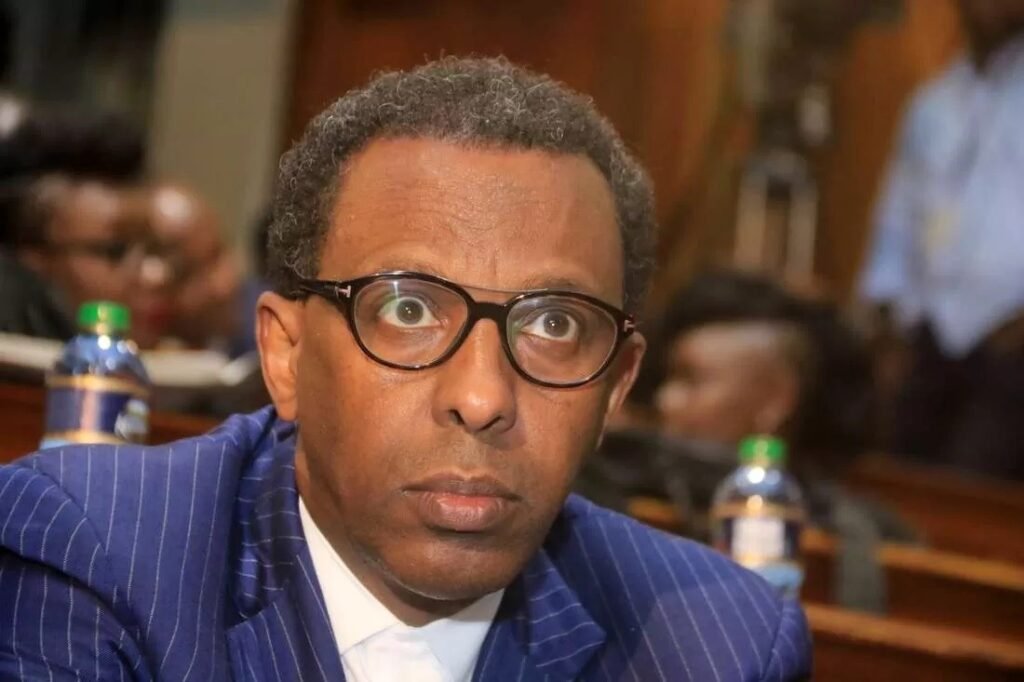The Supreme Court has suffered a major setback in its case against Senior Counsel Ahmednasir Abdullahi who was banned from appearing in the apex court early this year.
Last week, the High Court declined to dismiss a petition filed by the Law Society of Kenya challenging the indefinite ban against Mr Abdullahi and ten of his associates.
In his ruling, Justice Chacha Mwita argued that the High Court had the power to determine the petition because anyone claiming an infringement of their constitutional rights and freedoms has a right to be heard.
The seven judges of the Supreme Court — led by Chief Justice Martha Koome — had in an administrative letter barred Mr Abdullahi from ever appearing before them either on his own behalf of on behalf of his clients.
And in their response to the LSK petition in the High Court, they argued that the court had no jurisdiction to hear the case, and that such action could lead to the subversion of the Constitution. They also argued that they enjoy immunity under the Constitution and the Judicature Act and, therefore, cannot be sued for discharging their duties.
However, Justice Mwita dismissed their arguments, ruling that anybody who moves to court to challenge an instance of an abuse of their rights and fundamental freedoms must be accorded an opportunity to be heard, and this is the cardinal principle in the Constitution.
“In that respect, my view is that the issues raised in the petition are not idle,” said Justice Mwita. “They fall within the ambit of Article 23(1) 165(3) (b) of the Constitution and, therefore, under the jurisdiction of this court. The court has to determine whether indeed rights and fundamental rights have been violated or threatened to be violated.”
LSK had moved to the High Court to challenge the decision by the seven judges to permanently bar Mr Abdullahi and his associates from appearing before the court. The lawyers’ association argued that the ban was against the rules of natural justice as Senior Counsel Abdullahi was never accorded the chance to be heard despite the seriousness of the decision. It also said the decision was unconstitutional, unreasonable and contrary to the laws of Kenya.
- Lawyer Ahmednasir sues Kenya over Supreme Court ban, seeks Sh200m in damages
- Lawyer petitions to remove CJ Koome for incompetence
Justice Mwita, in his decision, said the High Court will have to decide whether the action complained of and those raised by the Supreme Court judges were inconsistent with the Constitution.
The LSK, in its petition which was supported by Mr Abdullahi, has named the seven judges of the Supreme Court and the deputy registrar of the court as interested parties in the case.
In banning Mr Abdullahi and his associates from appearing before them in January this year, the Supreme Court judges alleged consistent distasteful remarks made by the Senior Counsel against the court and its judges on various media platforms.
In a strongly-worded letter signed by the court’s registrar, Mr L.M, Wachira, the judges also barred employees of Mr Abdullahi’s law firm from filing cases before it.
“It is the decision of this court, that henceforth and from the date of this communication, you shall have no audience before the court, either by yourself, through an employee of your law firm, or any other person holding brief for you, or acting pursuant to your instructions,” read the letter.
Mr Abdullahi has challenged the decision in the East African Court of Justice in Arusha, Tanzania. He has argued that four of the court’s judges had received bribes to influence their verdicts in a presidential election petition, accusing the court of being involved in and abetting corruption.



